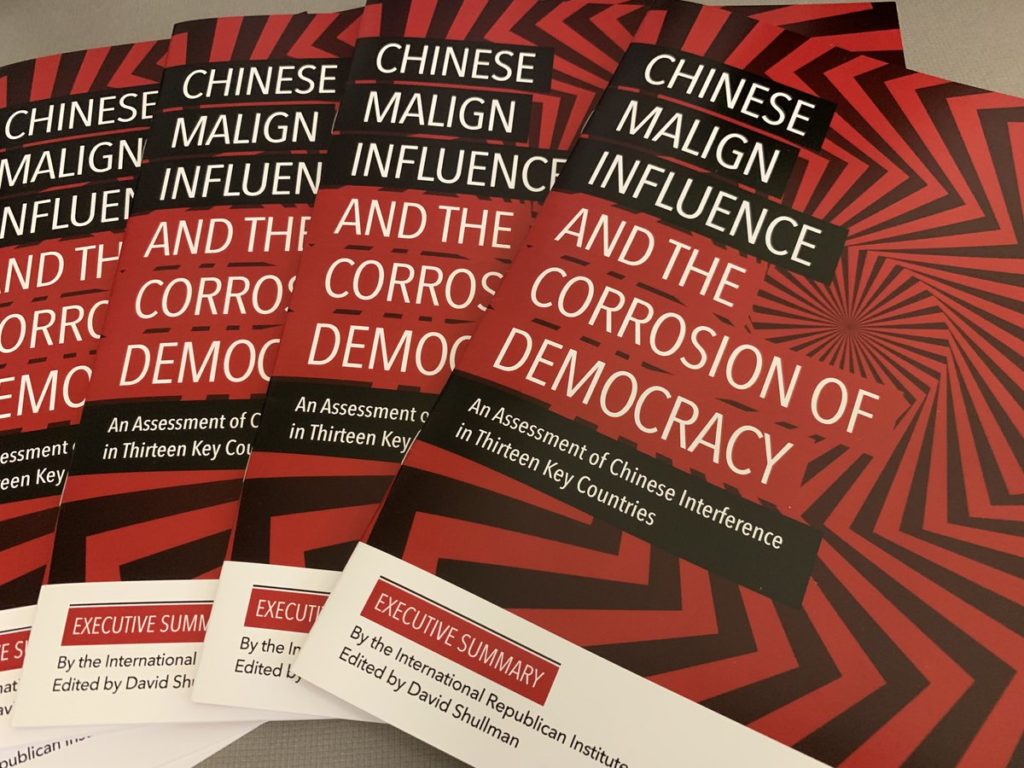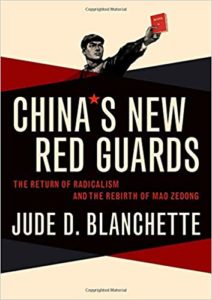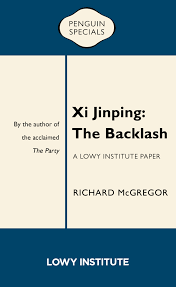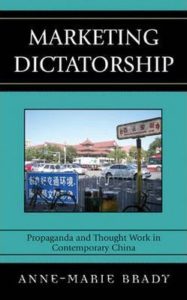
IRI
The primaries for Taiwan’s forthcoming presidential election are highlighting fears over China’s political influence. Pro-Beijing media are being credited with populist Han Kuo-Yu’s victory to lead the opposition, The Financial Times reports:
The Chinese Communist party’s voice has proliferated across the island’s media sphere. Last week Lin Yu-tsang, a citizen journalist, revealed that two dozen little-known Taiwanese news websites were republishing reports verbatim from China Taiwan Web, a propaganda website of the Taiwan Affairs Office.
“China has stretched its hands into our democratic politics and into the heart of it, our media,” said Chiu Chui-cheng, deputy minister of the Mainland Affairs Council, Taiwan’s cabinet-level policy body that deals with China affairs.
 Canada’s recent initiatives against foreign interference in elections have focused on Russian-style disinformation. But Chinese efforts to influence the outcome of October’s federal election are the real threat, and Australia’s recent Foreign Influence Transparency Scheme would be a better model for countering Beijing’s sharp power, analyst Terry Glavin writes for McLeans:
Canada’s recent initiatives against foreign interference in elections have focused on Russian-style disinformation. But Chinese efforts to influence the outcome of October’s federal election are the real threat, and Australia’s recent Foreign Influence Transparency Scheme would be a better model for countering Beijing’s sharp power, analyst Terry Glavin writes for McLeans:
Beijing’s influence operations in Canada are at least as deeply entrenched as they have been in Australia, but there isn’t much in Canadian law to stand in Beijing’s way. The all-powerful United Front Work Department, which Chinese president Xi Jinping calls China’s “magic weapon,” is increasingly hyperactive in Canada.
China’s sharp power is having a corrosive impact on vulnerable democracies, according to a recent report from the International Republican Institute’s (IRI) Building Resiliency for Interconnected Democracies in Global Environments (BRIDGE) initiative.
Through economic influence and manipulation of information space, the Chinese Communist Party’s (CCP) is undermining democratic prospects in Cambodia, Pakistan, Sri Lanka, Serbia, Ecuador, Zambia, Mongolia, Hungary, The Gambia, Myanmar, Malaysia and the Maldives, notes the report, “Chinese Malign Influence and the Corrosion of Democracy.”
 “From massive infrastructure projects that fuel corruption to efforts to stem criticism of China in the local media, the CCP’s malign influence in all of these countries is growing, and its tactics are becoming more sophisticated,” said David Shullman, IRI Senior Advisor and the editor of the report. “As China’s global influence continues to grow, so too does the threat to democracies worldwide.”
“From massive infrastructure projects that fuel corruption to efforts to stem criticism of China in the local media, the CCP’s malign influence in all of these countries is growing, and its tactics are becoming more sophisticated,” said David Shullman, IRI Senior Advisor and the editor of the report. “As China’s global influence continues to grow, so too does the threat to democracies worldwide.”
Since becoming paramount leader in 2012, Xi Jinping has sought to position China’s ruling Communist Party (CCP) at the heart of society and promulgate its ideology to skeptical young Chinese. He has policed speech on campuses and encouraged Communist Party cells to expand inside private corporations, The Washington Post’s Gerry Shih writes.
These days, the Communist Party is trying to “normalize and legitimize” itself in the eyes of not only everyday Chinese but also of foreign countries, which have grown wary of the organization’s covert global influence, said Jude Blanchette, the head of the China practice at the Crumpton Group and author of “The New Red Guards.”
 Xi has centralised power, cracked down on dissidents and purged the party with a popular, ruthless and sometimes politically convenient anti-corruption campaign, adds Lowy Institute Senior Fellow Richard McGregor, author of a new book, Xi Jinping – The Backlash. He has tightened the spaces for dissent in China, had Xi Jinping Thought written into the guiding ideology of the Chinese Communist Party and removed his own presidential term limits.
Xi has centralised power, cracked down on dissidents and purged the party with a popular, ruthless and sometimes politically convenient anti-corruption campaign, adds Lowy Institute Senior Fellow Richard McGregor, author of a new book, Xi Jinping – The Backlash. He has tightened the spaces for dissent in China, had Xi Jinping Thought written into the guiding ideology of the Chinese Communist Party and removed his own presidential term limits.
“Just as it is difficult to anticipate where any challenge will come from, it is equally hard to see how Xi’s supremacy in domestic politics can be sustained,” he writes. “Factors which remain out of Xi’s control will weigh against him. China’s slowing economy and rapidly declining demographics can obviously be leveraged to argue in favor of maintaining tight authoritarian controls. But they are much more likely to work against Xi in future.”
But with a slowing economy, demographic pressures, and increasing pushback from adversaries without and within, how long can Xi’s grip on China last? McGregor asks in the Lowy Institute’s new podcast, Rules Based Audio.
The CCP is a Leninist party, and its use of united front tactics and organizations represents a holistic approach to influence operations wholly unlike other countries, notes Russell Hsiao, the executive director of the Global Taiwan Institute and currently a visiting scholar the University of Tokyo’s Institute of Advanced Asian Studies. Singapore has long been a target of CCP united front attention, and the city authorities have a history of combating CCP propaganda that dates back to the 1950s and 1960s, when People’s Republic of China (PRC) leaders sought to export communist revolution to Southeast Asia, he writes for The Jamestown Foundation:
 The primary avenues for CCP influence operations in Singapore are found in business associations, clan associations, and grassroots organizations. CCP propaganda efforts in Singapore that flow through these organizations aim to promote the narrative of a “greater China”—one that includes all people of Chinese descent, irrespective of nationality—and therefore, one in which ethnic Chinese persons of all nationalities should show affinity and loyalty towards the Chinese state represented by the PRC.
The primary avenues for CCP influence operations in Singapore are found in business associations, clan associations, and grassroots organizations. CCP propaganda efforts in Singapore that flow through these organizations aim to promote the narrative of a “greater China”—one that includes all people of Chinese descent, irrespective of nationality—and therefore, one in which ethnic Chinese persons of all nationalities should show affinity and loyalty towards the Chinese state represented by the PRC.
The CCP’s fundamental purpose, therefore, is to impose a Chinese identity on Singapore so that it will align more closely with the PRC’s expanding interests, adds Hsiao, a Penn Kemble Fellow at the National Endowment for Democracy for 2018-19.
But the IRI/BRIDGE report also identifies sources of resilience, notably robust civil society, independent media, and assertive political leadership which have successfully countered Chinese influence operations.
 “China’s increasingly aggressive authoritarianism is one of the most daunting challenges facing our democratic institutions and values worldwide,” said IRI President Daniel Twining (right). “This significant new study of the mechanics of this phenomenon will help policymakers, civil society and citizens to inoculate their countries against malign forms of Chinese influence that corrode democratic practice.”
“China’s increasingly aggressive authoritarianism is one of the most daunting challenges facing our democratic institutions and values worldwide,” said IRI President Daniel Twining (right). “This significant new study of the mechanics of this phenomenon will help policymakers, civil society and citizens to inoculate their countries against malign forms of Chinese influence that corrode democratic practice.”
The BRIDGE initiative, funded by the National Endowment for Democracy, addresses challenges to democracy by raising awareness of authoritarian tactics and engaging stakeholders to implement customized strategies in response.
View the executive summary for the report’s key findings, or download the full report.







